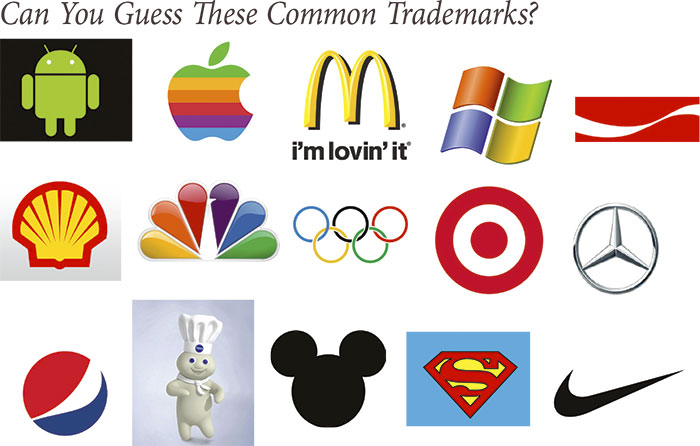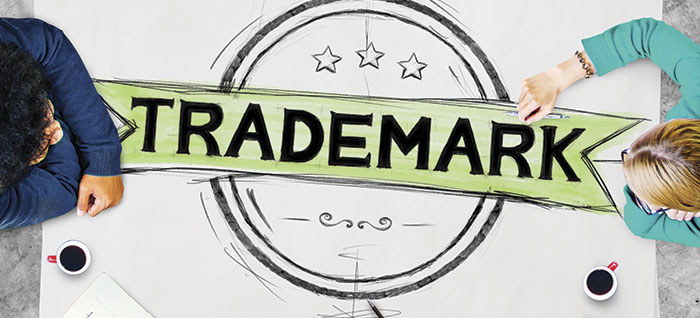
Good naming and good marketing weren’t invented yesterday. Consider the story of John K. Hogg of Frederick, Maryland, a manufacturer of soap. Hogg had a concept for a special soap, so he applied for a trademark. He called his product “Star Soap,” and a star symbol was to be “printed, stamped or impressed upon the outside of each piece of soap,” as he wrote in his application. Yes, Hogg had real naming and marketing skills, in particular:
- A simple, one-syllable name (“star”)
- A highly meaningful word to convey both his aspirations and the quality of his product (stars symbolize quality and celestial energy)
- A physical symbol built right into the name (the star design on the soap’s packaging)
What’s the rest of the story? Hogg was the recipient of Trademark No. 9. That’s right, the ninth trademark ever issued by the government of the United States. The date of his registration was October 25, 1870, before Colt (registered in 1889), Quaker (registered in 1895), Pepsi (registered in 1896) and Mercedes (registered in 1900).
What Is a Trademark?
A trademark is defined by the United States Patent and Trademark Office as “any word, slogan, shape, color, scent, taste or any combination of these used in commerce to identify and distinguish the goods of one manufacturer or seller from those of another and to indicate the source of the goods.”
A trademark is a mark that is applied to product—as opposed to a copyright, which protects original creative works such as books, movies, songs, paintings, photos, Web content and choreography. For example, if you sell footwear, then the mark you apply to the shoe (e.g. Nike) is a trademark.
A service mark is used in the delivery of services. If your bank is offering a checking account service called “Smart Checking,” this mark would be termed a service mark rather that a trademark, because it is used in the delivery of services rather than being applied to a physical product.
What Are Trademarks For?
Consumers who are satisfied are more likely to buy or use the product or service again in the future. For this, they need to be able to easily distinguish between identical or similar products. The main function of a trademark is to enable consumers to identify a product or service of a particular company so as to distinguish it from other identical or similar products and services provided by competitors. The power of a trademark allows you to find the exact product you need out of hundreds on a grocery store shelf.
By enabling companies to differentiate themselves and their products from those of the competition, trademarks play a powerful role in the branding and marketing strategies of companies. A company’s image and reputation creates trust, establishing a loyal clientele and enhancing a company’s goodwill. Consumers often develop an emotional attachment to certain trademarks based on a set of desired qualities or features embodied in the products or services bearing such marks. (Remember the outcry over “new” Coke versus Coke Classic?)
 Can You Guess These Common Trademarks? Click here to see the results.
Can You Guess These Common Trademarks? Click here to see the results.The Value of Trademarks
A carefully selected and nurtured trademark is a valuable business asset for most companies. For some, it may be the most valuable asset they own. Estimates of the value of some of the world’s most famous trademarks, such as Coca-Cola or IBM, exceed $70 billion—each. This is because consumers value trademarks, their reputation, their image and a set of desired qualities they associate with the mark, and they are willing to buy a product bearing a trademark that they recognize and know meets their expectations. Therefore, simply owning a trademark with a good image and reputation provides a company with a competitive edge.
While most businesses realize the importance of using trademarks to differentiate their products or services from those of their competitors, not all realize the importance of protecting them through registration.
Registration, under relevant U.S. trademark law, gives your company the exclusive right to prevent others from marketing identical or similar products or services under the same or a confusingly similar mark. Without trademark registration, your investments in marketing may become wasteful as rival companies may use the same or a confusingly similar trademark for identical or similar products or services. If a competitor adopts a similar or identical trademark, customers could be misled into buying the competitor’s product or service thinking it comes from your company. This could not only decrease your company’s profits and confuse your customers, but may also damage the reputation and image of your company, particularly if the rival product or service is of inferior or poor quality.
Receiving a trademark cease-and-desist letter or infringement notice can be an unsettling event. There are many circumstances in which you may receive one, but they all have one common thread—if the allegations in the letter are true, they can be devastating for a business. Securing ownership of intellectual property serves as prima facie evidence of the validity and exclusivity of the mark for the goods and services listed in the registration and serves as defense to a conflict matter.
Given the value of trademarks and the importance that a trademark may have in determining the success of a business in the marketplace, it is critical to make sure that it is registered in the relevant markets. In addition, a registered trademark may be licensed to other companies, thus providing an additional source of revenue for your company, or it may be the basis for a franchising agreement. (For example, though origination stories differ, the Green Bay Packers and the University of Georgia have a shared agreement for use of the trademarked oval “G” that both teams use.)
How You Can Protect Trademarks
Trademark protection can be obtained through registration and, in some cases, through use. Even where trademarks can be protected through use, you are well advised to register the trademark by filing the appropriate application. Registering a trademark will provide stronger protection, particularly in case of conflict with an identical or confusingly similar mark.
Why Trademarks are Important to Business

- Trademarks make it easy for consumers to find you.
- Trademarks help prevent marketplace confusion.
- Trademarks are an economically efficient communication tool.
- Trademarks are an enduring asset.
- Trademarks allow businesses to most effectively utilize the Internet and social media.
- Trademarks are very effective against unfair competition.
